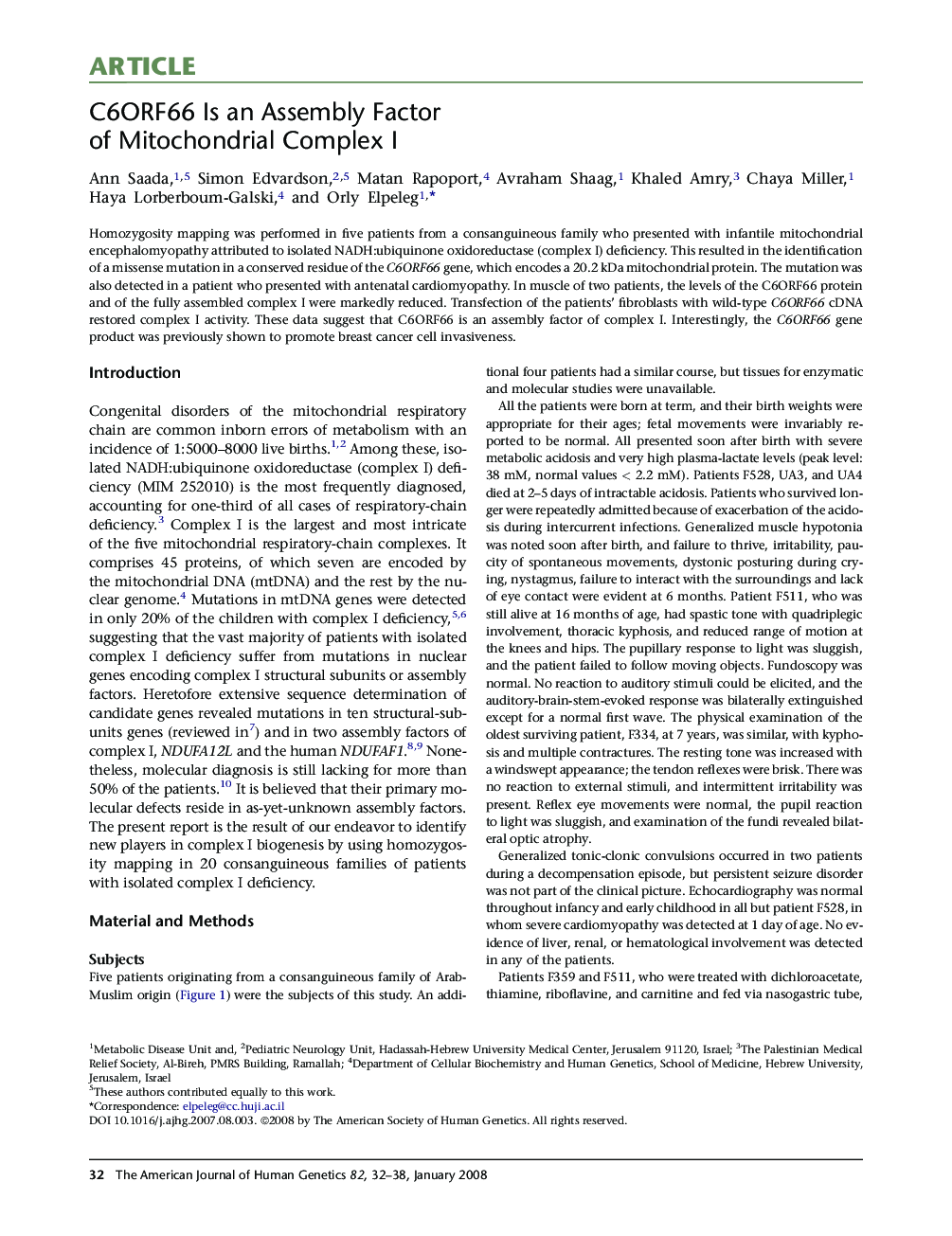| Article ID | Journal | Published Year | Pages | File Type |
|---|---|---|---|---|
| 2811744 | The American Journal of Human Genetics | 2008 | 7 Pages |
Homozygosity mapping was performed in five patients from a consanguineous family who presented with infantile mitochondrial encephalomyopathy attributed to isolated NADH:ubiquinone oxidoreductase (complex I) deficiency. This resulted in the identification of a missense mutation in a conserved residue of the C6ORF66 gene, which encodes a 20.2 kDa mitochondrial protein. The mutation was also detected in a patient who presented with antenatal cardiomyopathy. In muscle of two patients, the levels of the C6ORF66 protein and of the fully assembled complex I were markedly reduced. Transfection of the patients' fibroblasts with wild-type C6ORF66 cDNA restored complex I activity. These data suggest that C6ORF66 is an assembly factor of complex I. Interestingly, the C6ORF66 gene product was previously shown to promote breast cancer cell invasiveness.
